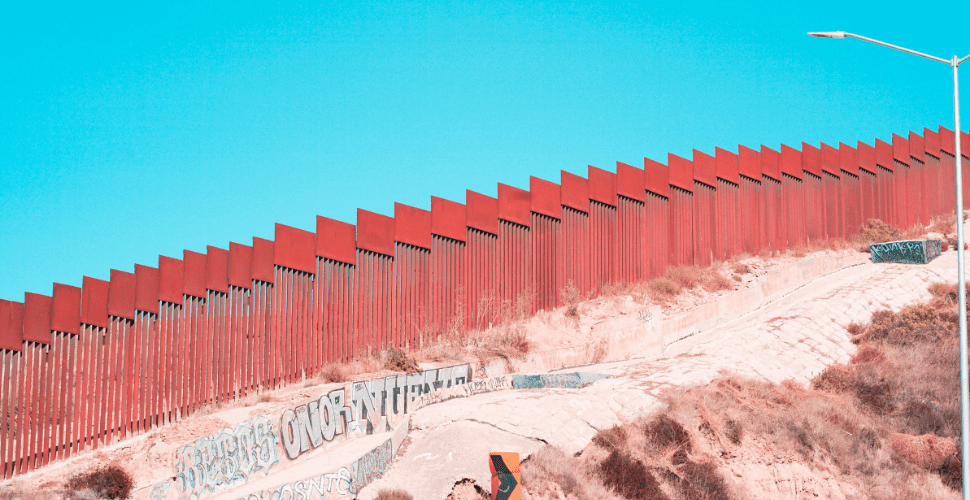How the U.S. is endangering people seeking asylum

On May 20, a U.S. judge blocked the termination of Title 42, a measure that authorizes the expulsion of non-U.S. citizens without screenings or asylum protection. Amnesty International has called this decision “an affront to the human rights of people in search of safety throughout the Americas region” in a recent article. Substantial research by Amnesty reveals the harm caused by Title 42 expulsions and similar migration policies in the U.S.
Title 42 and the Remain in Mexico policy put people at risk
Introduced by the Trump administration in March 2020, Title 42 was supposedly a response to the COVID-19 pandemic. Since its creation, tens of thousands of people seeking asylum have been forcibly returned to the countries they had fled.
Erika Guevara-Rosas, Americas director at Amnesty International, says:
Title 42 expulsions have always been a xenophobic policy thinly disguised as a public health measure. The decision to halt its termination is a devastating blow to human rights in the Americas and will put countless lives at risk, in violation of US law and international law. It sends a message to governments across the Americas that the United States has total disregard for the human right to seek asylum, setting a shamefully bad example in the protection of the rights of people in search of safety.
Another harmful migration policy which is creating vulnerabilities to exploitation and abuse among people seeking safety in the U.S. is the Remain in Mexico policy. This policy enables the government to send people awaiting an asylum claim result to Mexico. As a result, people are stuck in camps along the border where they are at high risk of exploitation and human trafficking.
The impact on Haitians
Amnesty has released research into the impact of Title 42 on several groups in need of international protection. One particular study, published in December 2021 in collaboration with Center for Gender & Refugee Studies, Haitian Bridge Alliance, the Global Justice Clinic at NYU School of Law, the Groupe d'Appui aux Rapatriés et Réfugiés (GARR), Refugees International, Rezo Fwotalye Jano Siksè and Service Jésuite aux Migrants Haiti, reflects on the risks to Haitians seeking asylum.
The research found that the U.S. alleged public health concerns to systematically misuse Title 42 to carry out wide-scale expulsions of Haitians and people of other nationalities who were seeking asylum. People were likely sent back despite facing extreme danger. Border police also reportedly used excessive force against Haitians in Del Rio, Texas in September 2021. These practices demonstrate the systemic discrimination, racism and xenophobia inherent to the country's migration and policing systems.
Deportations of unaccompanied children
Another group that has been negatively affected by Title 42 is unaccompanied children. In June 2021, Amnesty released information about the expulsion of thousands of unaccompanied children. Over just 9 months of 2020 (March-November), at least 13,000 unaccompanied children were deported under Title 42.
In November 2020, a federal court ordered a temporary halt of the deportation of minors under 42, which was extended when President Biden signed an Executive Order in January 2021. However, with current policies continuing to keep parents out of the U.S., families are still being split up.
Safe migration helps end human trafficking
The U.S. government is perpetuating modern slavery and human trafficking among people on the move through harmful and restrictive migration policies, like Title 42 and the Remain in Mexico policy. Rather than enabling the safe movement and stay of people seeking asylum, governments are forcing them to return to places where they face danger.
The Freedom United community has had enough of governments endangering people on the move while using justifications that don't hold up to scrutiny, like public health concerns and anti-trafficking agendas. We're calling for immediate action to overhaul migration systems with the aim of prioritizing human rights. Join us today
This “Eyes on Trafficking” story is reprinted from a Google News Alert for “human trafficking.”
ABOUT PBJ LEARNING
PBJ Learning is a leading provider of online human trafficking training, focusing on awareness and prevention education. Their interactive Human Trafficking Essentials online course is being used worldwide to educate professionals and individuals how to recognize human trafficking and how to respond to a potential victim. Their online human trafficking course is available for use on any web browser (even your mobile phone) at any time.
More stories like this can be found in your PBJ Learning Knowledge Vault.
